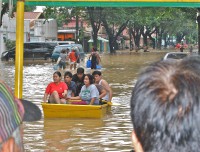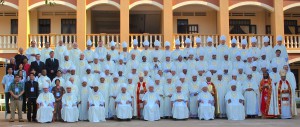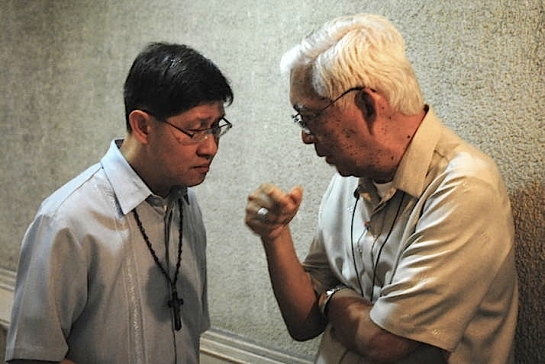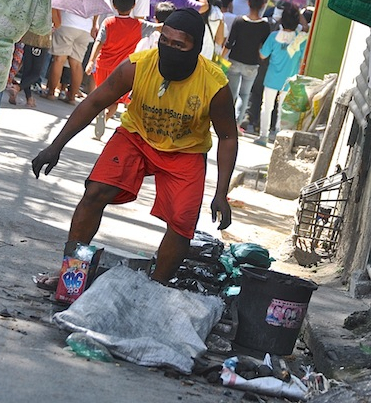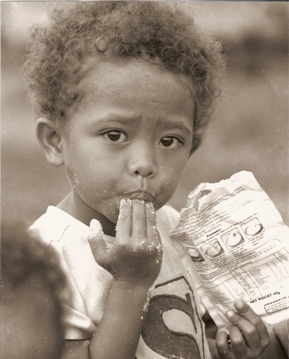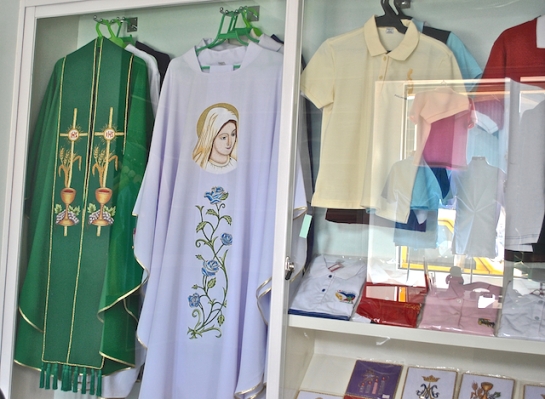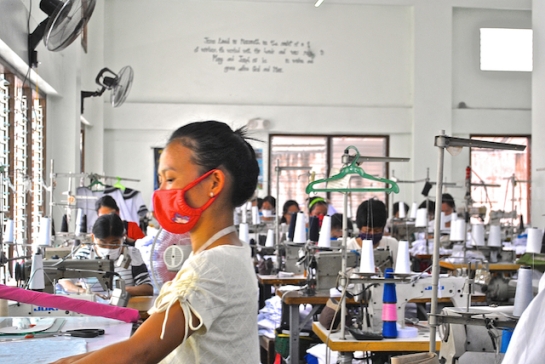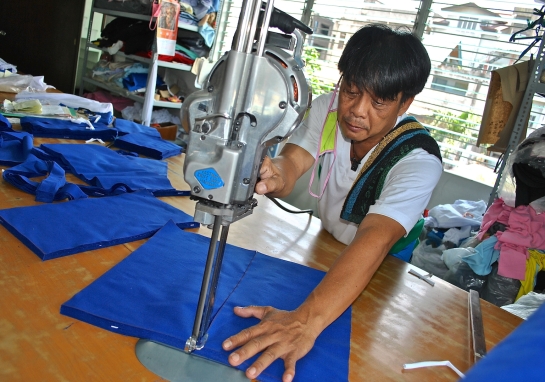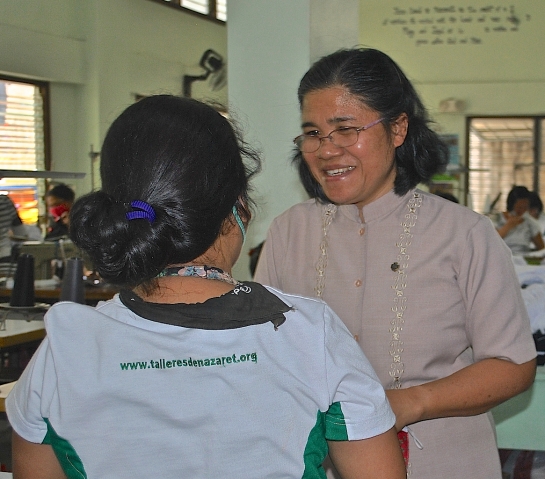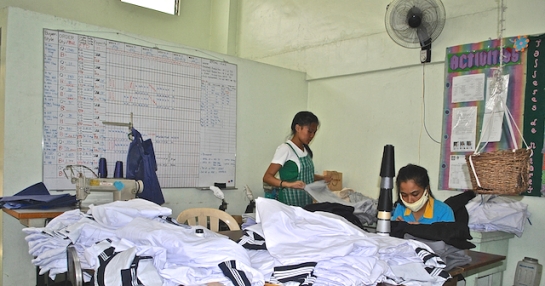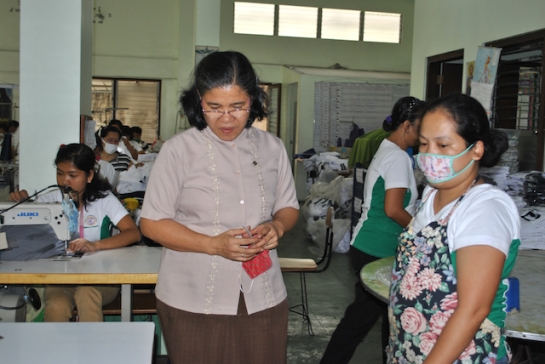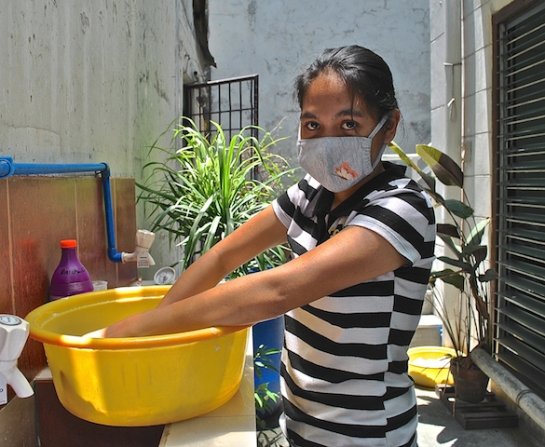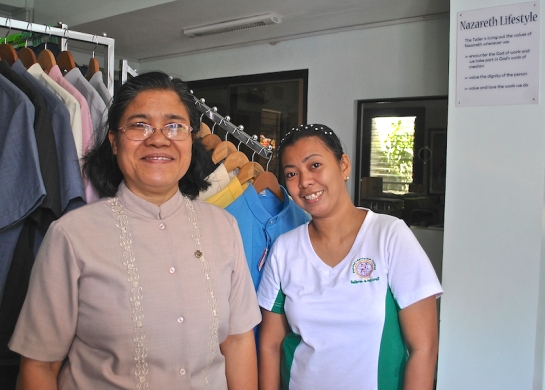[updated June 21, 4:21 a.m.]
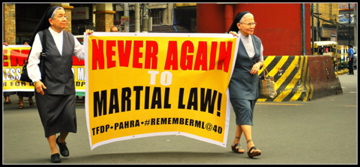
Sister Crecensia Lucero SFIC (left) marched to campaign for protection of human rights to avoid repetition of abuses during and around the martial law period 1972-1981. Photo Courtesy of Philippine Center for Human Rights/Task Force Detainees https://www.facebook.com/TaskForceDetaineesofthePhilippines
Franciscan Sisters of the Immaculate Conception Sister Crecensia Lucero reflected on her ministry with victims of human rights violations spanning more than 40 years. The journey she traced is marked by work she and young sisters and lay partners did to serve needs of political prisoners and their families during years when the country was placed under military rule (1972-1981) and years of “restored democracy” that followed. The road has brought her to an expanded ministry thriving in partnerships with farmers struggling to transform exploitative systems, indigenous peoples and members of other sectors collaborating to end people’s suffering due to various forms of “injustice ” around Asia.
In an interview with Global Sisters Report (GSR), Sister Lucero explained challenges, successes and “heartaches” in the history of Task Force Detainees of the Philippines (TFD). As co-chair, she describes how evolving challenges are impacting perspectives and strategies of her social justice ministry and the charism and mission of her congregation. Beyond words and ideas, however, she demonstrated these concepts and strategies in various dialogues and training seminars GSR covered earlier in the year.
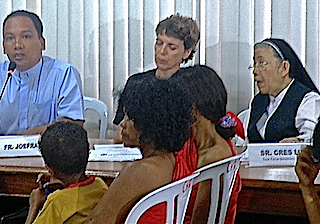
A fact-finding mission representing Christian groups visited the site of an attack on the convent of Father Jose Francisco Talaban of Infanta Prelature in June 2010 presented to the Commission on Human Rights and human rights advocates, including Sr. Cresencia Lucero initial information they gained from probing groups and individuals in Casiguran town, Aurora province where some indigenous people and other groups are opposing the development of an economic zone. NJ Viehland Photos
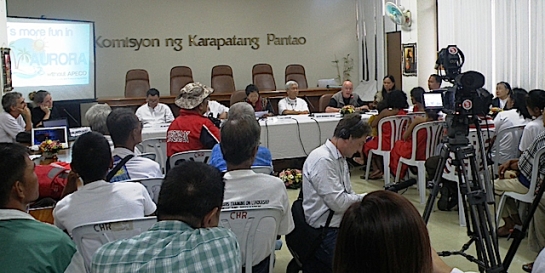
Sister Crecensia Lucero SFIC (right, in habit) witnessed the presentation last year of report of an ecumenical fact finding mission on residents’ opposition to the planned APECO export processing zone development project in Casiguran, Quezon to the Commission on Human Rights in Quezon City, northeast of Manila. By NJ Viehland
Read full interview published by GSR. GSR is a project of National Catholic Reporter that reports how consecrated women participate in the mission of the Church.
The Association of Major Religious Superiors in the Philippines (AMRSP) established TFD in 1974 to assist political prisoners when the “dictatorship” of the late President Ferdinand Marcos banned organizations. TFD provided moral spiritual, legal and material support to prisoners and their families. Franciscan Sister Mariani Dimaranan, an ex-political detainee, directed the organization until 1989, when Lucero took over as director. Sister Dimaranan continued as chair until her death in 2005 at the age of 81 years.
In 2012, Sister Lucero was again nominated co-chair of the Task Force’s Board of Trustees with Order of Carmelites Philippines Father Christian “Toots” Buenafe up to this year.
